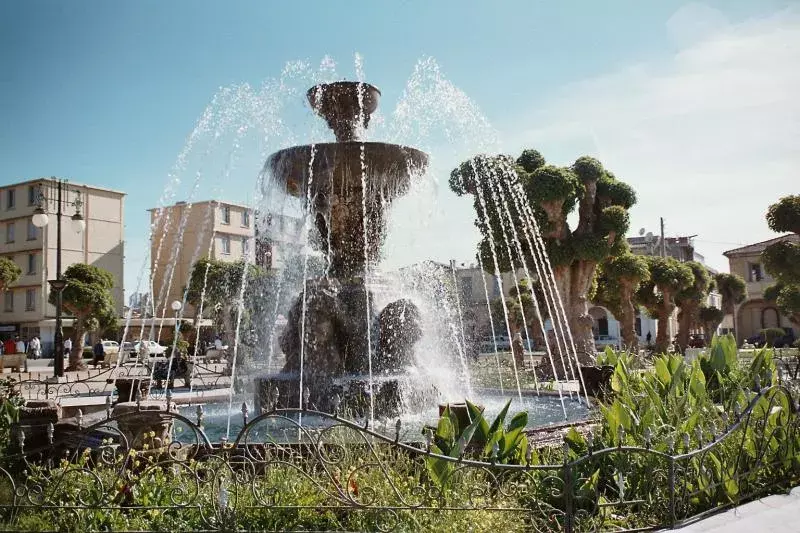
Cherchell
Overall Rating: ⭐⭐⭐⭐☆ (4/5)
Rating Breakdown:
✔ Cultural Significance – ⭐⭐⭐⭐⭐ (5/5)
✔ Natural Beauty – ⭐⭐⭐⭐☆ (4/5)
✔ Accessibility – ⭐⭐⭐☆☆ (3/5)
✔ Tourist-Friendly – ⭐⭐⭐☆☆ (3/5)
✔ Infrastructure & Amenities – ⭐⭐⭐☆☆ (3/5)
Weather
- Mediterranean climate – warm, dry summers and mild, wet winters.
Tags
- Ancient Roman City, Coastal Town, Archaeological Sites
Timings
- Town accessible year-round; specific attractions may have varying operating hours.
Time Required
- 1 – 2 days to explore the town and its main attractions thoroughly.
Entry Fee
- No general entry fee for the town; individual attractions may have their own charges.
Things to See & Do
- Archaeological Museum of Cherchell – Explore a collection of Roman and Greek antiquities, including sculptures and mosaics. Wikipedia+1Lonely Planet+1
- Roman Ruins – Visit remnants of ancient structures such as amphitheaters, baths, and temples that reflect the town's historical significance.
- Port of Cherchell – Enjoy the scenic views of the Mediterranean and observe local fishing activities.
- Bab el Tenes – Discover the old town gate, a testament to Cherchell's historical architecture.
Best Time to Visit
- Spring (March to May) and autumn (September to November) offer pleasant weather for outdoor activities.
Nearest Parking Spots
- Limited parking available near major attractions; advisable to use public transportation or taxis.
Overview
- Cherchell, historically known as Iol and later Caesarea, is a coastal town located approximately 89 kilometers west of Algiers.
- Founded as a Phoenician trading station, it later became the capital of Mauretania under King Juba II.
- The town boasts a rich tapestry of history, evident in its well-preserved Roman and Greek ruins.
- Archaeological Museum of Cherchell – Houses an extensive collection of artifacts from the Roman and Greek periods.
- Roman Amphitheater – Remains of an ancient venue that once hosted gladiatorial games and performances.
- Ancient Baths – Explore the remnants of Roman public baths, showcasing the engineering prowess of the era.
- Bab el Tenes – The historic gateway marking the entrance to the old town.
- Originally established as Iol by the Phoenicians, Cherchell flourished under King Juba II, who renamed it Caesarea in honor of Emperor Augustus. The town became a center of Hellenistic culture and later thrived under Roman rule. Throughout its history, Cherchell has witnessed various civilizations, each leaving its imprint on the town's cultural and architectural landscape.
- Language – Arabic and French are widely spoken; knowledge of basic French phrases can be helpful.
- Transportation – Public transport options are limited; consider using taxis or renting a car for flexibility.
- Local Etiquette – Respect local customs and traditions, especially when visiting religious or historical sites.
- Safety – Stay updated on local advisories and exercise standard precautions.
- By Road – Approximately 89 km west of Algiers; accessible via the N11 coastal road.Google Arts & Culture+1Wikipedia+1
- By Public Transport – Limited bus services operate between Algiers and Cherchell; taxis are a more reliable option.